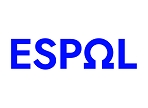FORMATIONS |
Fiche détaillée d'un cours
 | Digital political communication | ||
2023-2024 | FrESPOL European School of Political and Social Sciences
(
ESPOL
)
| ||
Code Cours : | 2324-ESPOL-EIS-EN-4011 | ||
| Niveau | Année de formation | Période | Langue d'enseignement |
|---|---|---|---|
| S2 | FrAnglais |
| Professeur(s) responsable(s) | MARTA GALLINA |
|---|---|
| Intervenant(s) | Pas d'autre intervenant |
- Ce cours apparaît dans les formations suivantes :
- ESPOL - Master 1 Digital Politics and Governance - S2 - 6 ECTS
Pré requis
Familiarity with basic concepts in political science or communication studies can provide a foundation for understanding the concepts and theories explained in this course.
Objectifs du cours
Students will explore the latest developments in the debate about digital political communication, encompassing both voter perspectives and the roles of parties and media. Additionally, students will enhance their skills in oral presentations, written communication, and the execution of small-scale research projects.
Contenu du cours
This master-level course introduces students to an examination of the relationship between politics and digital media, and its evolution over the years. The course will start with an introduction about the transformation of political communication in the digital age, mentioning the theories of “mediatization” and analysing empirical types of digital media systems. Three sessions will be dedicated to understanding the interplay between political parties, media and voters, exploring research about media effects, investigating the psychological dimensions of partisan selective exposure and understanding the dynamics of media learning in both a low-choice and high-choice information environment. The subsequent four sessions will cover more in particular the language and strategies of political parties in a digitalised age, analysing how electoral campaigning has evolved through different phases, the use of populism as a communication style and its interconnection with digital media, and how negative campaigning is used to attract attention of the public and of the media. The course will then explore the spread of conspiracy theories in a digitalized world and their risks for democracy. It will conclude by envisioning the future of political communication, considering changing parties, evolving issue priorities, and the influence of Artificial Intelligence. Overall, this course is meant to equip students with a deep understanding of the dynamics shaping contemporary political discourse in the digital era.
Modalités d'enseignement
Organisation du cours
The course is composed of 9 sessions, for a total of 24 hours. Lectures are structured as follows: presentation of the topic of the day and 1 or 2 students' presentations.
Méthodes pédagogiques
Évaluation
Contrôle continu : coeff. 100
Bibliographie
The core readings for this course are:||
Frank Esser and Jesper Strömbäck, Mediatization of Politics: Understanding the Transformation of Western Democracies. (2014). Palgrave Macmillan.||
Hardy, J. (2013). Comparing media systems. In The handbook of comparative communication research (pp. 185-206). Routledge.||
Kaid, L. L. (Ed.). (2004). Handbook of political communication research. Routledge.||
Kenski, K., & Jamieson, K. H. (Eds.). (2017). The Oxford handbook of political communication. Oxford University Press.||
A detailed bibliography, including readings per each lecture, can be found in the syllabus.
Ressources internet
N/A
* Informations non contractuelles et pouvant être soumises à modification


















































































